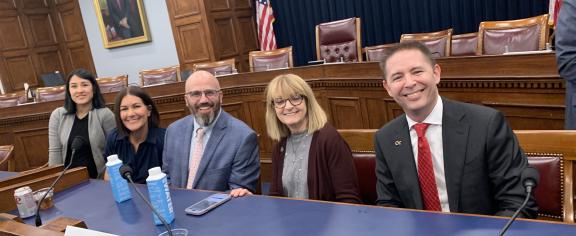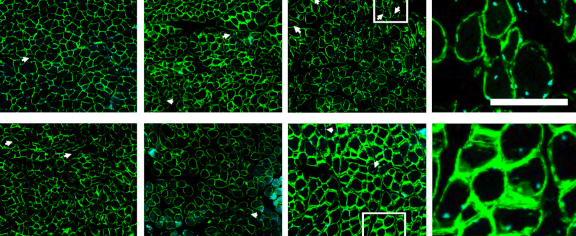2024-04-25
Board of Regents' Distinctions honor the recipients for their outstanding contributions and excellence.
2024-04-24
Chris Rozell traveled to Washington, D.C. to share the impacts of the past decade of brain research funded by the NIH BRAIN Initiative with Congress — and share with local representatives how Georgia Tech is playing a key role in leading the charge.
2024-04-19
Grant is third NIH award for health technology startup.
2024-04-09
Effective July 1, Eric Vogel will become the executive director of the Institute for Matter and Systems (IMS), Georgia Tech’s newest Interdisciplinary Research Institute (IRI) that will launch on the same date.
2024-04-09
A team of Georgia Tech researchers is the first to study the relationship between fluctuations in attention and the brain network patterns within low-frequency 20-second cycles.
2024-04-03
Researchers at Georgia Tech have teamed up with NASA and five peer institutions to teach dog-like robots to navigate craters of the Moon and other challenging planetary surfaces.
2024-04-01
A new study from Georgia Tech's School of Economics is the first to tie high levels of social media exposure to increased visitors to the U.S. National Parks — and the increased crowding and ecological damage they bring with them.
2024-03-26
New treatment helps muscle regenerate following shoulder surgery
2024-03-25
The grant will support innovative research on lipid-based immunotherapies, which could help develop the next generation of universal immunotherapies.
2023-10-27
Carolina Colón, a Ph.D. student at Georgia Tech and a member of GTRI’s GEM Fellowship cohort, has been honored with the "Role Model Award – Graduate" by the Society of Hispanic Professional Engineers (SHPE).









